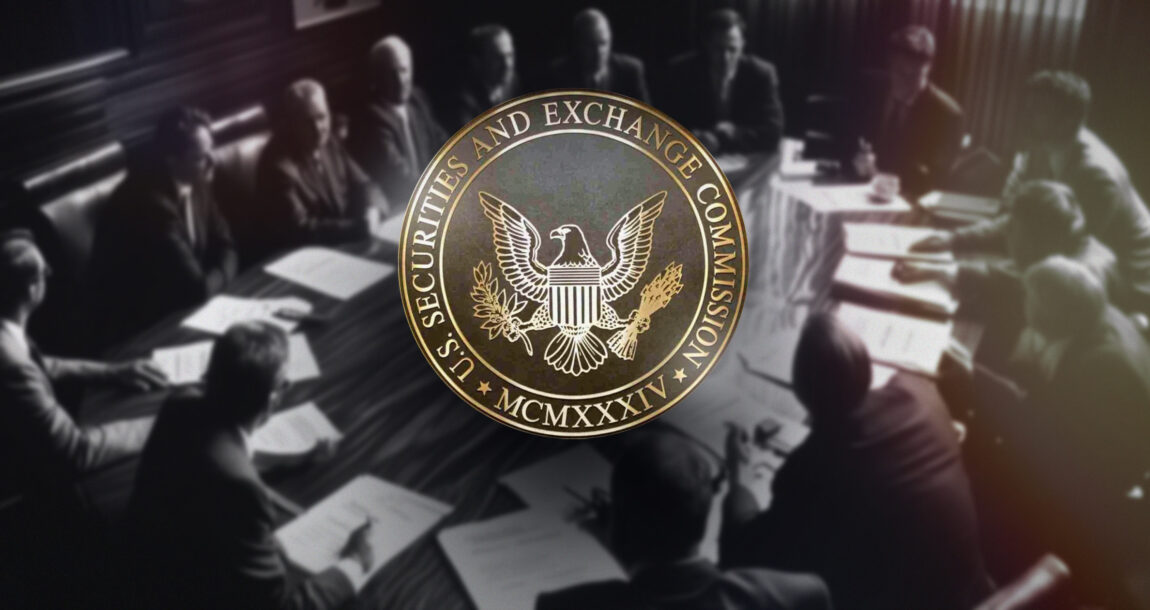SEC panel reviews mandatory arbitration clause in investment advisory agreements

Registered Investment Advisors (RIAs) were the focus of a recent SEC Investor Advisory Committee meeting over mandatory arbitration provisions. Legal professionals, investor advocates, and government officials among other panelists, looked at how these clauses might affect investor rights, justice, and openness. Talks exposed major gaps in data, legislation, and investor safeguards, sparking calls for change and more research.
Christine Lazaro, vice-dean of academic affairs, and director of the Securities Arbitration Clinic at St. John’s University School of Law, began the event by charting the evolution of securities industry arbitration. Under the Financial Industry Regulatory Authority (FINRA), she compared broker-dealer activities with RIAs, which run free from comparable control. Unlike FINRA's arbitration system, which guarantees uniformity and openness, RIAs sometimes name private arbitration venues including the American Arbitration Association (AAA) or JAMS, where policies and procedures differ greatly.
The SEC Ombuds and assistant director of the Office of the Investor Advocate, Stacy Puente, presented results from a recent study showing that 61% of examined RIA agreements had required arbitration clauses. Of them, 92% mentioned a forum, mostly AAA. But 83% cited AAA's commercial regulations, usually meant for business-to-business conflicts, instead of consumer-oriented guidelines. These differences generate questions about accessibility and fairness for regular investors.
Arbitration advantages
Kevin Carroll of the Securities Industry and Financial Markets Association (SIFMA) underlined the efficiency, economy, and privacy advantages of arbitration. Arbitration, he said, provides a controlled means for companies to limit expenses, simplifies conflict resolution, and avoids tactical delays. Carroll said, "many disputes would devolve into expensive, protracted litigation without pre-dispute arbitration clauses."
Adam Gana of the Public Investor Advocate Bar Association, among other investor champions, presented a different image. Arbitration agreements, Gana said, are contracts of adhesion meant to restrict investor rights. He included one-way fee-shifting clauses, class action waivers, and limited conditions that mostly help advisers: damage restrictions. Gana said, citing situations where clients dropped legitimate claims because of excessive arbitration fees, "these clauses often deter smaller claims and burden investors with prohibitive costs."
Stephen Bray of the Michigan Department of Licensing and Regulatory Affairs emphasized the significance of investor choice. He underlined the inconsistency in state rules and the lack of openness in RIA arbitration decisions. Under Section 921 of the Dodd-Frank Act, Bray urged SEC action to forbid or restrict mandatory arbitration arrangements, therefore promoting investor choice between arbitration and judicial litigation.
One often repeated issue was the dearth of information on RIA arbitrations. Private arbitration fora such as AAA and JAMS do not reveal results or offer aggregated data unlike FINRA's publicly available arbitration rulings and statistics. This opacity complicates attempts to evaluate the incidence of unpaid awards and the equity of arbitration procedures.
Improving openness
Panelists offered ideas for improving openness. Through changes to Form ADV, a disclosure form submitted with the SEC, Bray proposed mandating RIAs to reveal arbitration provisions and results. While Lazaro stressed the need for investor education about arbitration clauses included in agreements, Puente supported uniform disclosure of arbitration rules.
Panelists pointed out important aspects needing change:
- Advocates called for consumer-oriented arbitration standards to replace commercial rules sometimes used in RIA agreements.
- To guarantee fairness, clauses restricting claims, damages, or locations should be outlawed under Prohibition of Restrictive Terms.
- Public Release of Arbitration Decision: Transparency was judged essential to investor protection, just as FINRA's broker arbitration records show.
- Many panelists urged the SEC to forbid forced arbitration provisions so that investors may choose their conflict-of-interest forum.
Carroll and other industry officials argued that arbitration rules would help both sides, but detractors pointed out the natural power disparity. "Investors seldom ever negotiate these agreements," Gana said. Usually hidden in thick contracts, they are provided as take-it-or-leave-it terms.
Although the SEC panel came to no agreement, it recognized the need for more research and regulatory review. While Bray and others argued for stronger investor safeguards, Puente asked the SEC to use its jurisdiction under Dodd-Frank to confront limited arbitration practices.
One thing abundantly clear as the SEC considers its next actions: the argument over required arbitration clauses in investment advising agreements is far from resolved and has significant ramifications for individual investors and the financial advisory sector.
© Entire contents copyright 2024 by InsuranceNewsNet.com Inc. All rights reserved. No part of this article may be reprinted without the expressed written consent from InsuranceNewsNet.com.
Doug Bailey is a journalist and freelance writer who lives outside of Boston. He can be reached at [email protected].






SB 263 expected to bring chaos to Calif. insurance, annuity sales come Jan. 1
Trump, Capitol allies likely looking at quick cryptocurrency legislation
Advisor News
- Mitigating recession-based client anxiety
- Terri Kallsen begins board chair role at CFP Board
- Advisors underestimate demand for steady, guaranteed income, survey shows
- D.C. Digest: 'One Big Beautiful Bill' rebranded 'Working Families Tax Cut'
- OBBBA and New Year’s resolutions
More Advisor NewsAnnuity News
- MetLife Declares First Quarter 2026 Common Stock Dividend
- Using annuities as a legacy tool: The ROP feature
- Jackson Financial Inc. and TPG Inc. Announce Long-Term Strategic Partnership
- An Application for the Trademark “EMPOWER PERSONAL WEALTH” Has Been Filed by Great-West Life & Annuity Insurance Company: Great-West Life & Annuity Insurance Company
- Talcott Financial Group Launches Three New Fixed Annuity Products to Meet Growing Retail Demand for Secure Retirement Income
More Annuity NewsHealth/Employee Benefits News
- New Mexico's insurance exchange sees record enrollment ahead of Jan. 15 deadline
- Studies from University of Southern California Yield New Information about Managed Care (Why do few Medicare beneficiaries switch their Part D prescription drug plans? Insights from behavioral sciences): Managed Care
- Wyoming's catastrophic 'BearCare' health insurance plan could become reality
- Duckworth pushes military IVF coverage as critics warn taxpayers could pay
- House to consider extension for expired ACA subsidies
More Health/Employee Benefits NewsLife Insurance News